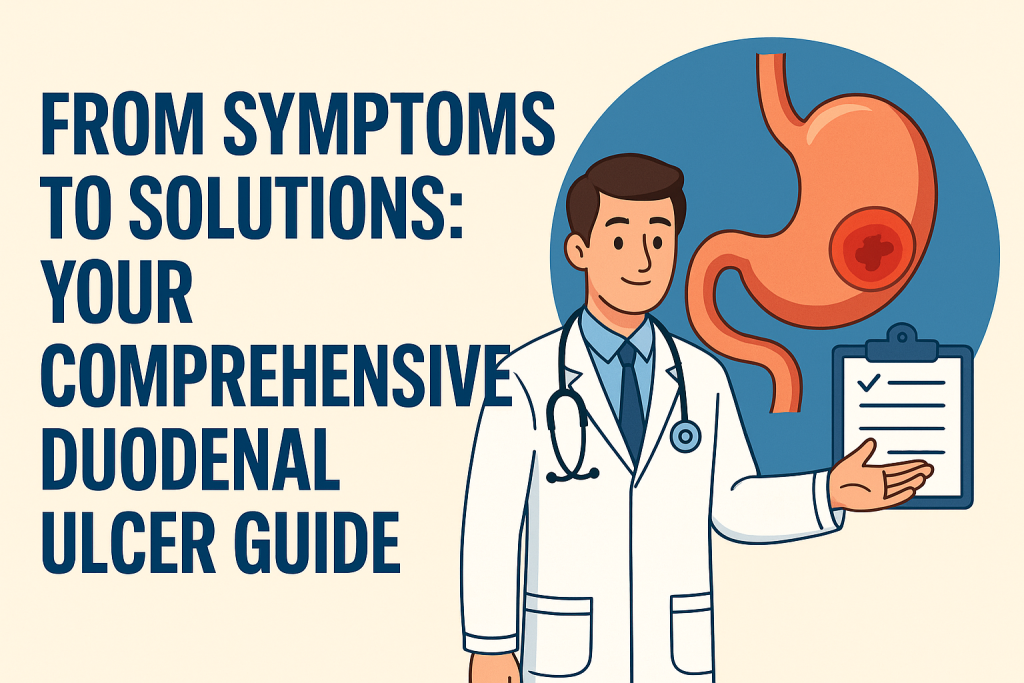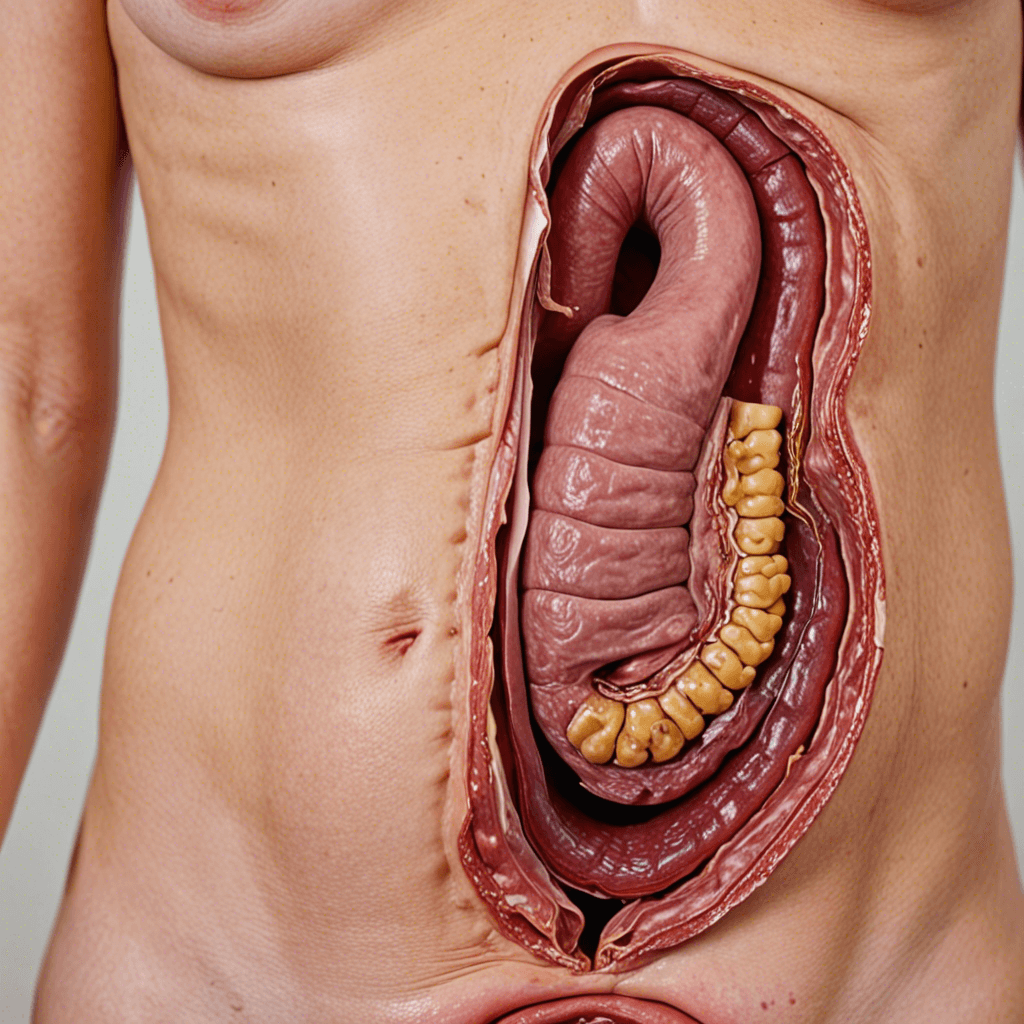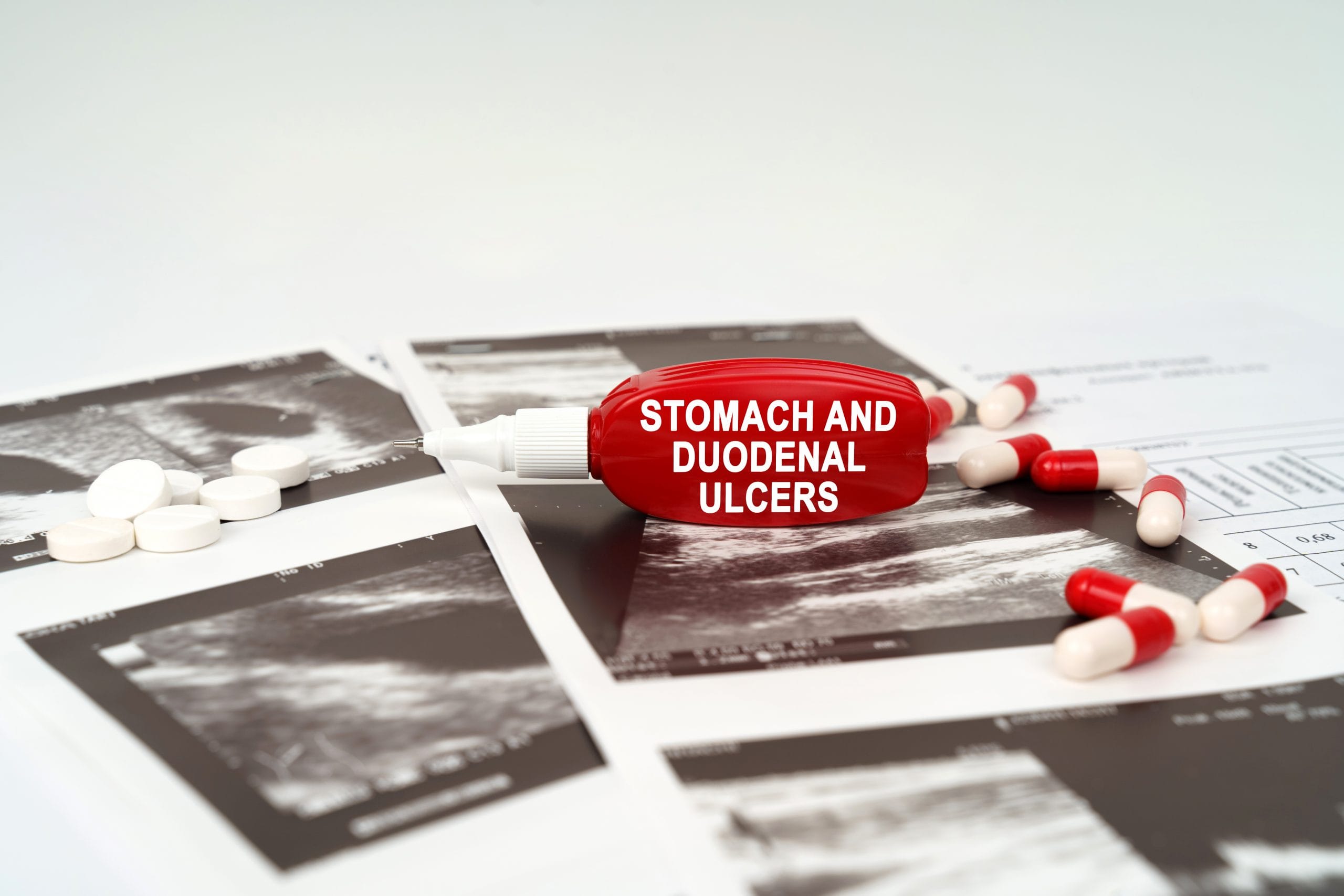Are you experiencing discomfort in your stomach and wondering if it could be a duodenal ulcer? You’re not alone! Many adults grapple with the nuances of digestive health, particularly when it involves those pesky duodenal ulcers. While they can be a real pain, they’re also manageable.
In this guide from our Gastroenterology Medical Clinic in Folsom, CA, we’ll walk through everything you need to know, from symptoms to solutions.
What Are Duodenal Ulcers?
Duodenal Ulcers are open sores that develop on the inner lining of the duodenum, the first part of your small intestine. While they can be uncomfortable or even debilitating, understanding them is the first step toward managing your health better.
Common Symptoms of Duodenal Ulcers
Knowing the symptoms of duodenal ulcers can help you identify issues sooner. Common signs include:
Burning Pain: This is often felt in the upper abdomen and might be relieved by eating or taking antacids.
Nausea or Vomiting: Some people experience nausea, which can sometimes lead to vomiting.
Bloating: An uncomfortable feeling of fullness or swelling in the abdomen that often occurs after eating.
Understanding these symptoms is crucial, especially since they can sometimes mimic those of other digestive conditions. If you find yourself frequently uncomfortable, it might be time to consider a consultation with our Gastroenterology Medical Clinic in Folsom, CA.
What Causes Duodenal Ulcers?
There are various causes of duodenal ulcers. The primary culprits usually include:
H. Pylori Infection
An infection from a bacterium called Helicobacter pylori (H. pylori) is responsible for many duodenal ulcers. This bacterium can weaken the protective mucous lining of the stomach and the duodenum, allowing stomach acid to create sores.
Long-Term Use of NSAIDs
Frequent use of Nonsteroidal Anti-Inflammatory Drugs (NSAIDs) like ibuprofen and aspirin can also lead to the formation of ulcers. If you’re someone who takes these medications regularly, knowing their risks is essential.
Lifestyle Factors
As with many health issues, lifestyle plays a significant role. Stress and excessive alcohol consumption can exacerbate hallmarks of duodenal ulcers, so it’s worth being mindful of how you may be contributing to your symptoms.
Diagnosing Duodenal Ulcers
Diagnosis typically involves a combination of methods:
Medical History and Physical Examination: Our doctors will assess your symptoms and lifestyle.
Tests: Procedures such as endoscopy or imaging studies can confirm the presence of an ulcer.
Understanding how these tests work can reduce anxiety when dealing with potential diagnoses. There’s no need to be scared; they’re routine for gastroenterologists.
Treatment Options for Duodenal Ulcers
When it comes to duodenal ulcer treatment, there are several routes to explore through our Gastroenterology Medical Clinic in Folsom, CA
Medications
Antacids and Proton Pump Inhibitors (PPIs) are commonly prescribed to reduce stomach acid and help heal the ulcer.
If H. pylori is involved, antibiotics may be prescribed to clear the infection.
Lifestyle and Dietary Changes
Ulcer Diet
What you eat can have a significant impact on your symptoms. Foods that may help include:
Fruits and Vegetables: These can boost your immune system and help soothe inflammation.
Whole Grains: Foods like oatmeal can be easier on a sensitive stomach.
Be cautious with spicy foods, caffeine, and acidic foods, as they may exacerbate discomfort.
Stress Management
Engaging in relaxation techniques like yoga and meditation can also contribute to managing symptoms. After all, a relaxed mind can translate to a relaxed gut!
Preventive Measures for Duodenal Ulcers
Healthy Living Strategies
Living a healthy lifestyle can ward off potential ulcers. Maintain a balanced diet, limit alcohol, and manage stress levels. Regular check-ups with our Gastroenterology Medical Clinic in Folsom, CA are also vital for prevention.
Recognizing Early Symptoms
The sooner you can detect any signs of duodenal ulcers, the better your chances of preventing complications. Keep track of your symptoms, and don’t hesitate to reach out to our clinic for advice.
Living with Duodenal Ulcers
Coping with duodenal ulcers doesn’t just stop at treatment; it involves a lifestyle adjustment. This new chapter may require learning new eating habits, practicing stress relief, and becoming more in tune with your body’s signals.
Support Systems
Consider speaking to a dietitian specializing in gastroenterology for personalized dietary adjustments. Support groups for individuals with digestive disorders can also provide comfort and helpful insights.
Conclusion
From recognizing the symptoms of duodenal ulcers to understanding treatment options, this guide aims to inform and empower you on your journey to better digestive health. Remember, knowledge is your best ally.
If you suspect you have a duodenal ulcer, don’t hesitate to reach out to our Gastroenterology Medical Clinic in Folsom, CA for further evaluation. You deserve to feel your best! So, let’s tackle those ulcers together—because a healthier gut means a happier you.






